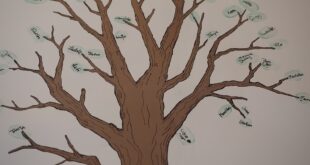Unlocking Your Family History: 5 Essential Keys
Why Genealogy Research is Important
Discovering your family roots and history can be a deeply fulfilling and enlightening experience. Uncovering your familial story will give you a newfound appreciation for your family and the lives they led, wherever they originated from. Not only that but mastering the art of building family records will leave behind a repository of knowledge for your children and grandchildren. Here are 5 essential tips to master the craft of genealogy.
Tip # 1: Speak with Family Members
The most excellent place to start chasing your ancestry is with listening a good conversation with your family members. Births, deaths, marriages, and family trees may have been recorded in someone’s memory. Gather as much relevant information as you can, double-check mailing addresses and digitize the necessary documents and photos.
Tip # 2: Explore Census Records and Church Records
Between censuses and church registers, it is comparatively straightforward to follow your ancestors’ lives in location through the generations and trace where they came from, who they married, whom they had children with, and where they worked.
Tip # 3: Embrace Online Genealogy Repositories
Search for your ancestors online, and the data you come across might already be there waiting for you. Because numerous kinds of personal details wind up on the internet via social media, you can verify genealogies, especially those who were involved in renowned deeds. Some free resources for online research include Family Search, MyHeritage, and Ancestry.
Tip # 4: Attend Historical Society Meetings and Events
Check community groups and watch for public events that may kindle your genealogical interest. Genealogy enthusiasts may organize a virtual or live special reunion, gather once a month, or even curate historical presentations at local venues like museums.
Tip # 5: Continue Learning and Documenting Your Family Journey
Enhance the records you create by allowing them to be quickly shared. Projects to document social history benefit from combining as much community input as possible, meaning personal collections of information, photographs, and data become collaborative petitions for updating generations to come.
Immortality through Stories
All said lifetime memories of weddings, new arrivals, vacations, plans, experiences, and various places bring empathy to our biological hunt, simplifying facts about characteristics that only individuals can impart. No surge of high-tech tools or gathering genealogy obsessively can engage you as much as the experience of rescuing individuals from forgetfulness and disseminating stories, kinship, and individuality.
 Mind Uncharted Explore. Discover. Learn.
Mind Uncharted Explore. Discover. Learn.



